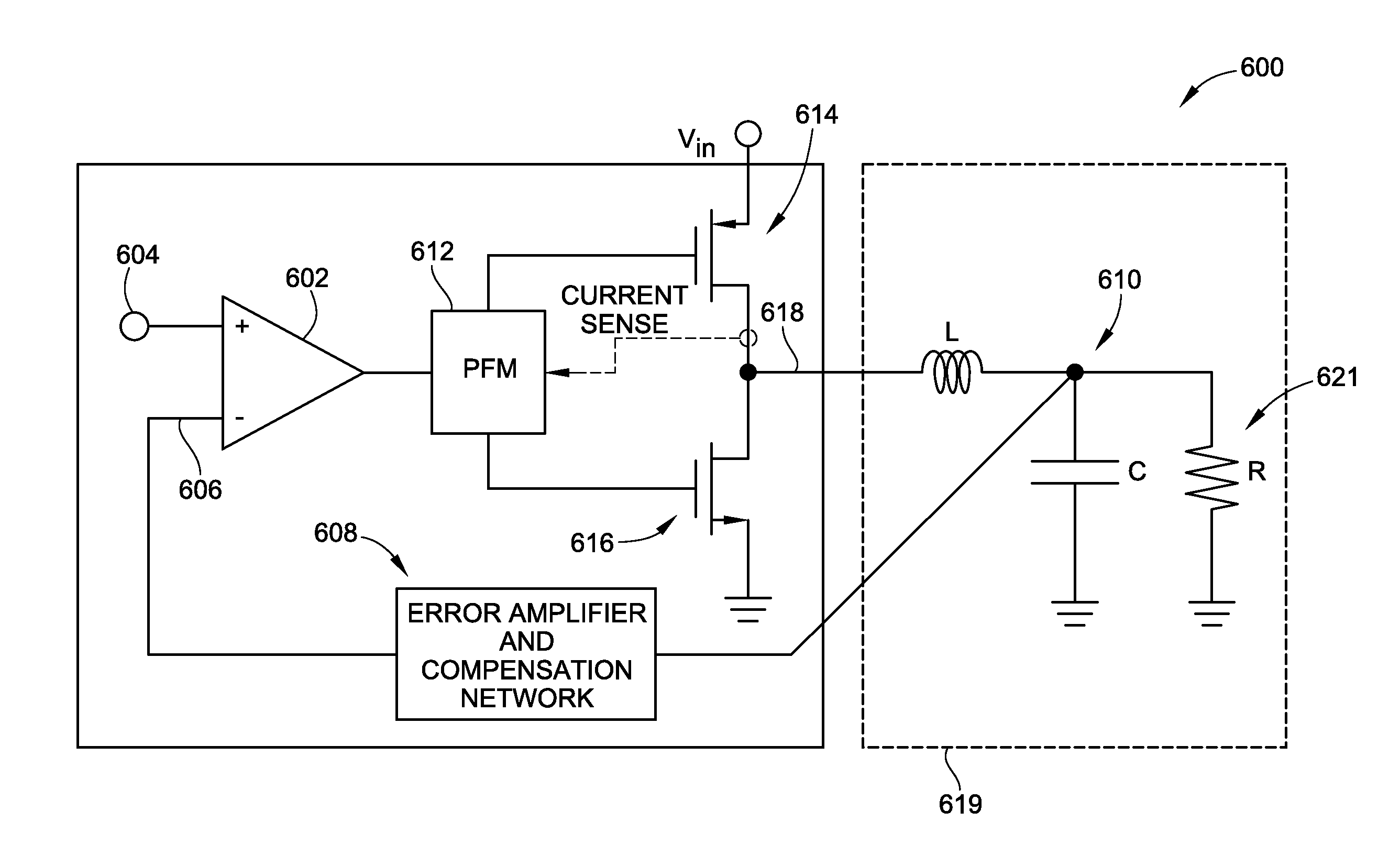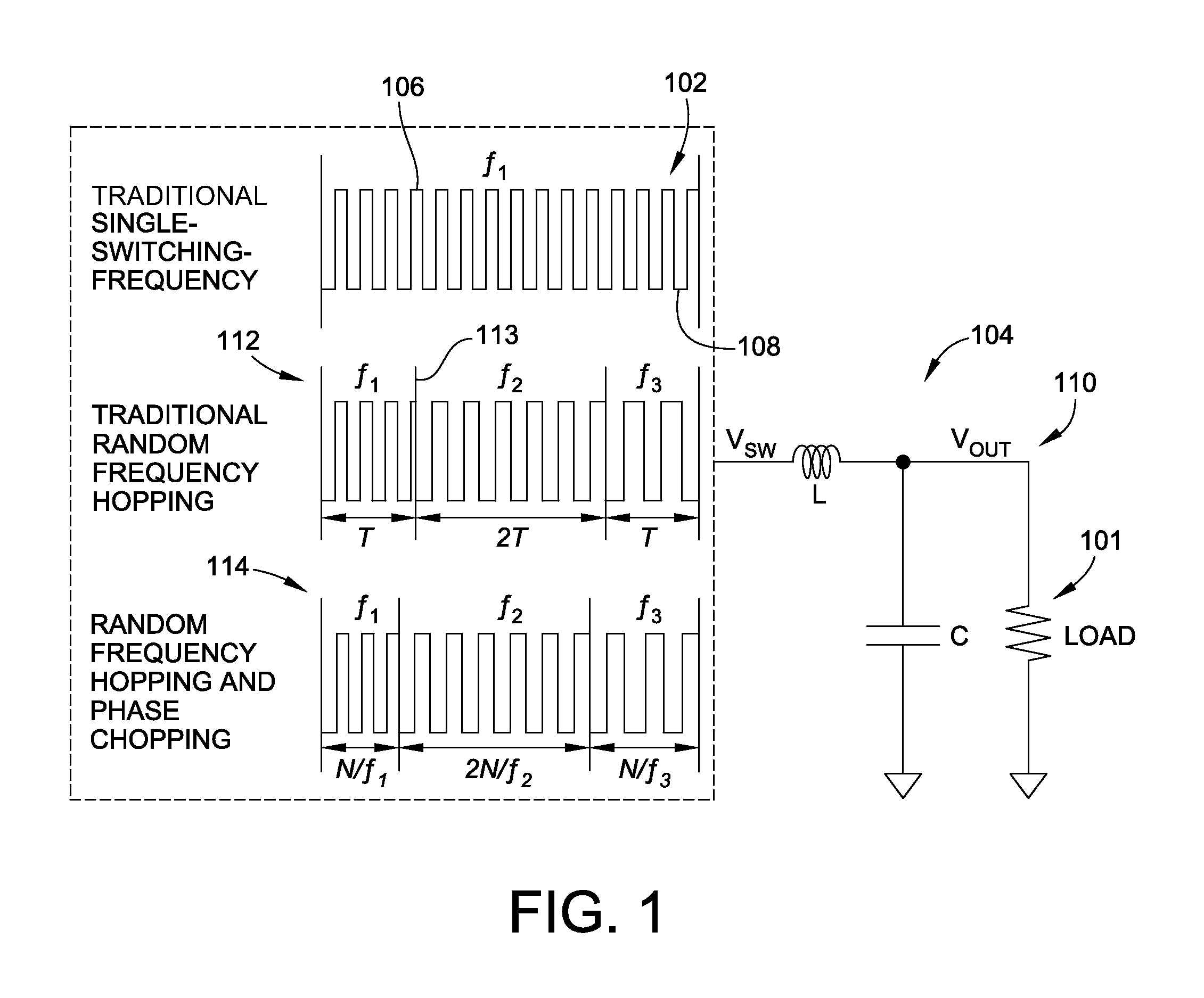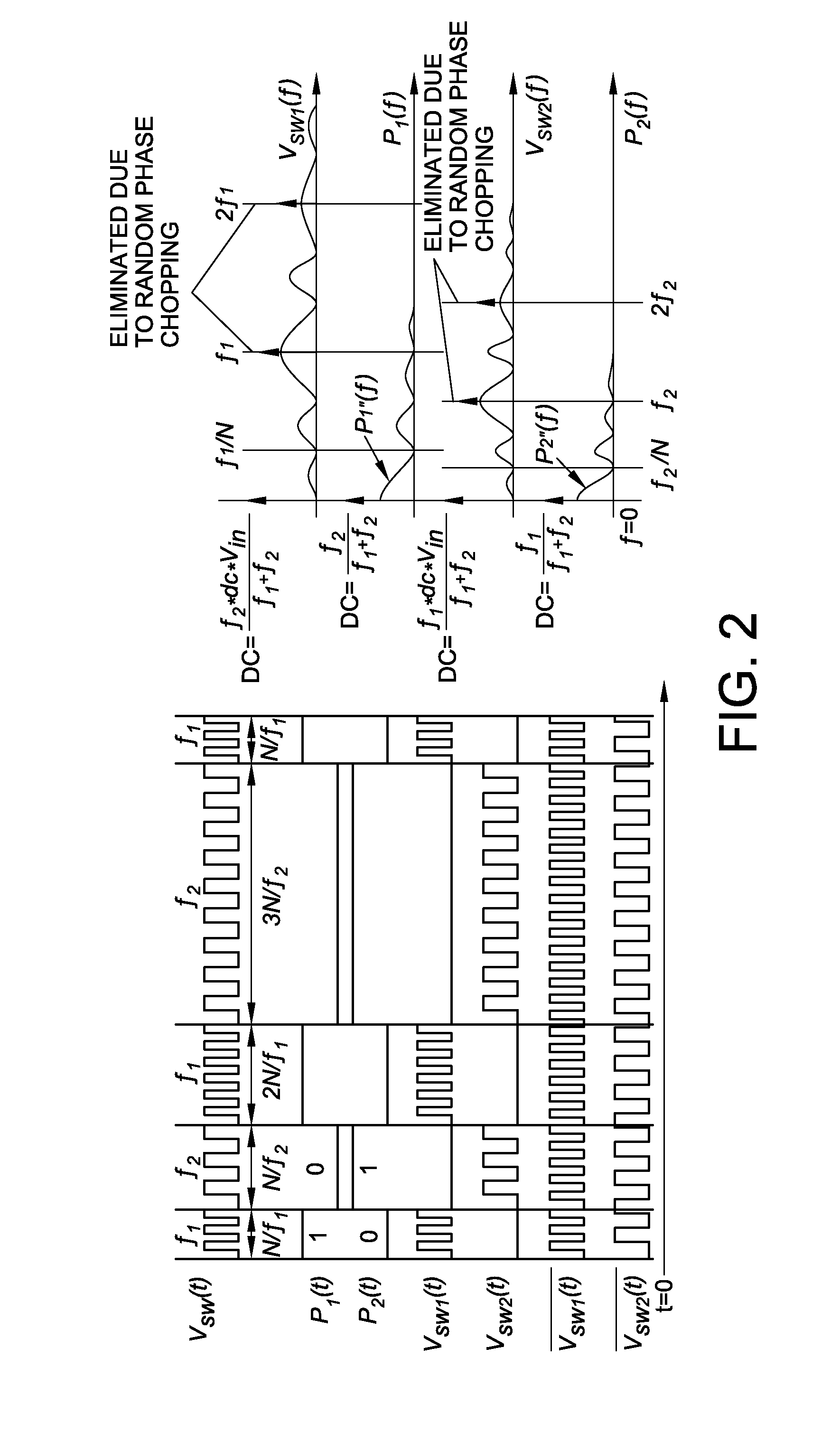System and method for providing power via a spurious-noise-free switching device
a switching device and spurious noise technology, applied in the direction of power conversion systems, dc-dc conversion, instruments, etc., can solve the problems of reducing power efficiency, increasing size and cost, and reducing performance, so as to eliminate spurious noise
- Summary
- Abstract
- Description
- Claims
- Application Information
AI Technical Summary
Benefits of technology
Problems solved by technology
Method used
Image
Examples
Embodiment Construction
[0034]Embodiments of the invention described herein disclose a new method for generating spurious-noise-free power from a switching converter, wherein the method combines random frequency hopping with random phase chopping to control the switching power converter. In order to understand the process underlying the embodiments of the invention, it is useful to remember that, in the steady-state, the spectrum of a switching converter output supplying a load 101 can be deduced using the diagram of FIG. 1, where a pulse train 102 at the switching frequency f1 is applied to a circuit 104, such as a low-pass LC filter, for example. This pulse train 102 alternates between the input power source level 106 and ground 108 with a duty-cycle determined by the voltage level required at the output 110 of the converter.
[0035]In traditional single-switching-frequency power converters, the pulse train 102 is periodic, and the spectrum of this periodic pulse train will have spurs at the switching freq...
PUM
 Login to View More
Login to View More Abstract
Description
Claims
Application Information
 Login to View More
Login to View More - R&D
- Intellectual Property
- Life Sciences
- Materials
- Tech Scout
- Unparalleled Data Quality
- Higher Quality Content
- 60% Fewer Hallucinations
Browse by: Latest US Patents, China's latest patents, Technical Efficacy Thesaurus, Application Domain, Technology Topic, Popular Technical Reports.
© 2025 PatSnap. All rights reserved.Legal|Privacy policy|Modern Slavery Act Transparency Statement|Sitemap|About US| Contact US: help@patsnap.com



